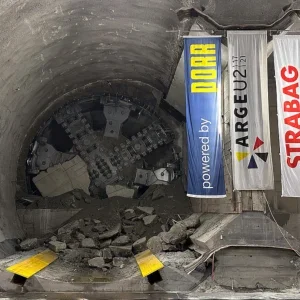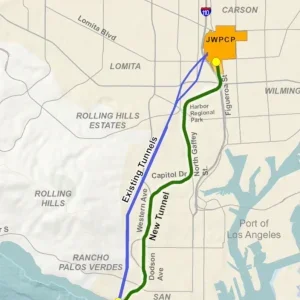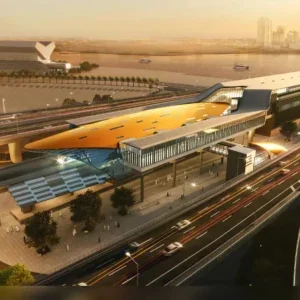Shetland Islands Council (SIC) in the UK is pursuing plans to connect the Island of Bressay to Lerwick on the mainland with a 1.6km tunnel, between 10m and 11m diameter that will sit under 11m of water.
“We have made a commitment to fixed links and now we
have got to start that journey,” director of transport Michael Craigie told T&TI.
The next step for the council is to obtain consents for the drill and blast project and determine a funding strategy. “It will be the first of its type to be done in the UK so there are no precedents. We have to determine how to obtain legal and technical approvals. We are looking at a base cost of £26M (US$23) but there is a further £8M (US$13) of risk that we have not yet mitigated out,” he explained.
Craigie said that successful tunnelling projects in neighbouring Faroe Islands had influenced the decision to opt for a tunnel crossing and said that the Bressay project could be the first of several tunnels in the area. “Developments in technology demonstrated by our neighbours in Faroe have given us confidence that tunnels are technically and financially viable,” he said.
The Faroe Islands in the
North Atlantic are situated
322km northwest of Shetland between Iceland and Norway, and have successfully constructed three tunnels
linking the various islands. A fourth, 27km crossing is now being investigated.
In the Shetland Islands
three further tunnels are also being considered by the council but a decision to proceed on these will depend on the success of the Bressay scheme.
On the Isle of Whalsay a
£111M (US$183), 6.5km tunnel
to connect to the mainland is under consideration. An existing ferry service runs from the Shetland’s capital Lerwick to Symbister but the Symbister terminal is considered to be severely under capacity.
Proposals to build an alternative terminal or expand Symbister
are also being considered.
Other crossings of 5.5km and 2.6km are also being considered between Yell and Unst over the Bluemull Sound.
However there is some
local resistance to tunnel proposals due to the time it would take for a fixed link
to become operational. “At Bressay we are looking at completion in 5 to 7 years. Planning consents will take two years and the tunnel will have roughly a 24 month construction programme,” said Craigie.
The SIC originally proposed
a £23M (US$38) bridge at Bressay but this was rejected
in 2005 by the Lerwick Port Authority. It claims that the
bridge would disrupt ferry operations and it is in favour
of a tunnel link. Its objections to the bridge led to approval from the Scottish Executive being blocked. At the end of 2007
SIC reopened a consultation
on the scheme. “Obtaining consents for a bridge were complex and there was tension between the various parties
but since this process began there have been technical developments that make us
more confident in tunnel technology,” said Craigie.







